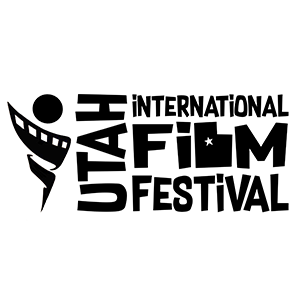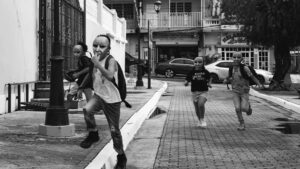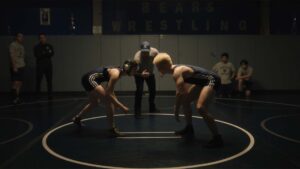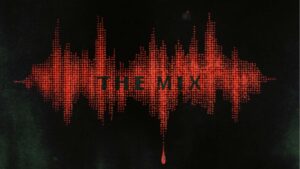Love in the Time of Quarantine
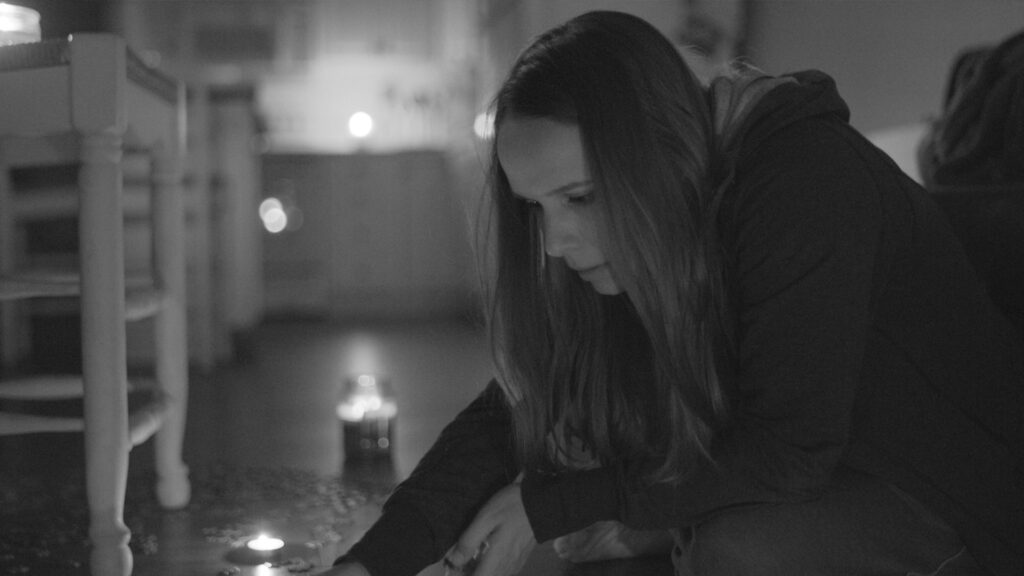
One can only imagine from what real-world circumstance “Love in the Time of Quarantine” drew its inspiration . . . And yet, the film’s timelessness somehow works without the context of the COVD-19 pandemic. Perhaps it’s the minimalistic dialogue and black-and-white photography echoing silent films of a century ago. Perhaps it’s because love is a foundational element even when the country isn’t on lockdown.
Here’s a film that actually understands how the “show don’t tell” principle works. And there’s a lot in this vocabulary. Faces and pantomime, yes, but also growing piles of books and a soundtrack that somehow makes love feel both mature and effervescent. An unfortunate byproduct of this minimalistic dialogue, though, is that Ella has very little say in this film, not even speaking until after we’re three-quarters of the way through the film. This paints her as a little passive, just short of objectified. We don’t feel this way about Matt, from whose perspective the story is framed and who at least gets to sing a line or two. Actors Arian Mohajer and Whitney Palmer sell the romance well enough.
The short runtime leaves little room in the script for developing either character, and so it falls on our actors to convince us that these are whole individuals, not just archetypes. Based on these performances, I can believe that Matt and Ella have quirks and backstories hiding just offscreen. It’s to their credit that watching both characters I was reminded more of individuals I know personally rather than other rom-coms I’ve seen. If the romance is mostly natural, some of the technical work isn’t always. We understand that Ella and Matt’s balconies face each other like they’re mirroring one another, but as we bounce back and forth, the framing doesn’t always show that, resulting in some awkward frames where Matt and Ella are looking in the same direction without looking at one another.
I couldn’t help but be reminded of the 360-degree rule. The sound design doesn’t seem to take space into account either. Matt’s not singing particularly loud on his balcony, but Ella seems to hear him just fine. The film even plays the soundtrack at the same level as though she’s sitting right next to him instead of across the esplanade, compromising the illusion. The narrative itself sometimes feels like it’s skipping a few steps. Receiving Ella’s first letter inspires no conflicted reaction in Matt; either he was deliberately serenading her right from the start, or he just wasn’t bothered to learn that someone was listening in on his private music time. One can only imagine how this film will be received in a post-coronapocalypse world.
From this side of lockdown, however, I will confess the film’s conclusion didn’t feel like the happy ending we needed. When the television announces at the end that quarantine has been lifted on Day 43 (the first moment I realized the lockdown I was watching wasn’t literally COVID-19), it’s a little too good to be true. The prospect of their romance literally pulling the country out of lockdown isn’t quite as cathartic as the idea of their emptiness being eased by a love that offers only what it can. The premise is mostly buoyed up by strong cinematic voice and performances, but it could use a stronger conclusion. And maybe some technical polishing.
